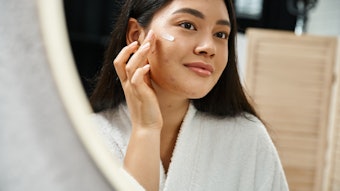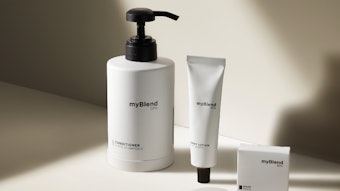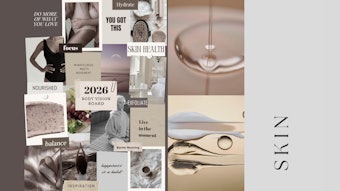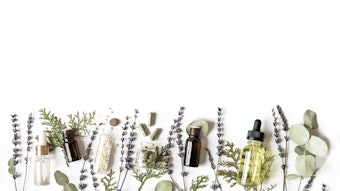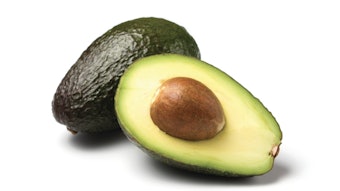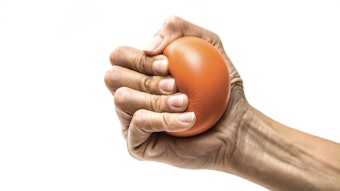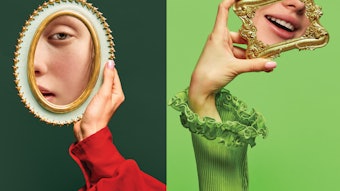The majority of American men—57%—consider themselves sexy, according to a new global survey by market research firm Synovate. Across all the markets surveyed, American men were among those most confident in their sexiness, after men in Greece (81%), Russia (80%), South Africa (78%) and Brazil (63%).
Synovate recently surveyed nearly 10,000 men and women in 12 countries to find out how men feel about their looks, which countries are seen as having the best-looking men and all the things men do to make themselves look good.
Do ya think I'm sexy?
Rod Stewart posed that perennial question to women in his classic 70s disco tune, but the Synovate male beauty study asked the men themselves. Of the survey’s nearly 5,000 male respondents worldwide, about half (49%) think they are sexy, though there were vast differences in self-belief across markets. While the above-mentioned countries were highly confident in their magnetism, most Malaysian males (78%) said they are not sexy, as did Chinese and French men (both 66%).
Hey, good-looking
The survey also asked respondents, both men and women, which one country has the best-looking men. Many were simply not sure, but there was a clear winner among the named countries.
Italy was ranked as the place with the best looking men (11%), followed by the United States, Russia and Brazil (all 8%). Italian men had top ranking among both men and women—12% of the survey’s male respondents chose Italian men, as did 10% of all female respondents.
Bob Michaels, senior vice president of Synovate's Consumer & Business Insights group in the United States, said that, overall, most respondents were very patriotic and nominated men from their own country. “One stand-out, and possibly quite reassuring, finding for men was that in most markets, women were even more likely than their male counterparts to go for handsome home-growns than to look abroad. But it's perhaps more interesting to look at the results within markets to see which nations are parochial and which look outside their borders for attractive people,” he said.
Some of the market-specific findings:
- Russia had the highest result for its own nation, with 65% of people saying the best-looking men come from their own country.
- The United States was fairly confident in the attractiveness of its men, with 55% saying Americans were the best-looking men
- Canada had a low result for its own men—only 24% of respondents said the best-looking men are to be found at home
- Brazilian women were a lot more patriotic than the men, with 57% of women saying Brazilians were the best-looking versus just 39% of men. Additionally, the Brazilians were pretty keen on Italians (16%) and American men (9%)
- Brits had a pretty low opinion of the homegrown men—only 23% went for the home vote. And nearly the same number chose Italian men, 21%.
But are men's looks actually important? Synovate asked male respondents to rank just how important their appearance is to them on a five-point scale and found that 34% of men across the globe rated their looks as ‘very important’ to them. This was highest in South Africa (61%), Brazil (55%) and Russia (53%). Only 15% of American men think their looks are ‘very important’ though another 44% said their looks are ‘quite important’ while an additional 37% said their looks are neither important nor unimportant.
Beauty basics
With this in mind, what is the bare minimum a man must do before he can be considered handsome? Pleasing women could be easier than men think as it turns out keeping it simple and sticking to the basics is far more important to women than it is men.
More than one third of all American women (36%) said that good hygiene was an absolute necessity before a man could be considered handsome, while only 23% of American men thought this was the number one requirement. Instead, American men thought that a man who 'carries himself with confidence', was the most important requirement (36%. Eleven percent of American men also think that working out and being physically fit is an important requirement compared to just 2% of women who think this.
Bald men need not worry. Only 1% of all respondents, including all Americans surveyed, said that a 'full head of hair' is necessary for someone to be handsome. However, a clean shaven face seems to be a must in most places across the globe. Synovate asked male respondents whether or not they preferred the way they look with a clean-shaven face. Nearly eight in ten (79%) men agreed that clean-shaven was best although there were significant differences between markets.
Those who most preferred a clean shaven face were South African men (90%), followed by men in China (88%) and Spain (84%), while those most likely to embrace a beard were men from Greece (34% disagreed on preferring to be clean-shaven), Australia and Brazil (both 25%), and Canada (24%).
The study also asked women whether they preferred the look of clean-shaven men and the same number of women as men agreed (79%). Again, the highest results were South Africa (92%), Spain (87%) and China (86%). Women who are more open to facial hair are from Canada (30%), Australia and the United States (both 26%).
Michaels said, "It's no coincidence that all three of these countries have a pioneering history and a love of the outdoors. But there's also the celebrity factor—while most American women still seem to prefer the clean-shaven look, celebrities like Brad Pitt and George Clooney have made the 'five o'clock shadow' synonymous with sexy. Women are conceding that they don't mind a little stubble on a man's face—it's considered rugged and masculine."
American men are already using some products in droves. A whopping 78% of men say they use mouthwash (second behind deodorant at 95%), 66% use cologne or aftershave and 39% use hair spray, gel or mousse. It’s all part of their main motivation to look good for themselves (67%) as well as their partners (37%).
It seems there’s no particularly negative stereotype in the United States for men to use some types of beauty products, with 44% of Americans saying that men who use these products are actually more confident. Only 16% of respondents said that men who use beauty products aren’t as masculine as those who don’t.
Michaels said the survey uncovered some fun facts, but there is a serious side to male beauty too, offering the thought that a male beauty standard simply does not exist. "Men never—or very rarely—talk about male beauty, making it an almost-taboo subject among our gender. Men don't comment on each other's appearance. They wouldn't dream of dissecting male celebrities' or athlete's looks. And men don't discuss beauty routines or products. In the end, men just want to be men. What that actually means changes from culture to culture, but the drive to be masculine is near universal,” Michaels said.
For more information on this study, visit www.synovate.com/insights/infact/issues/200811/.
About Synovate
Synovate, the market research arm of Aegis Group plc, generates consumer insights that drive competitive marketing solutions. The network provides clients with cohesive global support and a comprehensive suite of research solutions. Synovate employs more than 6,000 staff across 62 countries. More information on Synovate can be found at www.synovate.com.

